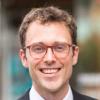Engineering Studies
Since the early 2000s, a set of networks have coalesced under the umbrella of “engineering studies” to investigate the roles of engineers in science, technology, and medicine. The CHSTM working group forwards this development with a specific focus on historical questions in a forum for early stage work. Engineering studies is a small but growing group of historians, anthropologists, sociologists, engineering educators, and other science and technology studies scholars, who center engineers and engineering as their subjects of analysis. The purpose of this working group is to promote historical research on engineering in the context of the Consortium for the History of Science, Technology, and Medicine by: building a vibrant community via regular meetings with low barriers to participation; sharing work in progress among historians and other engineering studies scholars; and clarifying the role of engineering studies in the history of science, technology, and medicine.
Please set your timezone at https://www.chstm.org/user
Consortium Respectful Behavior Policy
Participants at Consortium activities will treat each other with respect and consideration to create a collegial, inclusive, and professional environment that is free from any form of discrimination, harassment, or retaliation.
Participants will avoid any inappropriate actions or statements based on individual characteristics such as age, race, religion, ethnicity, sexual orientation, gender identity, gender expression, marital status, nationality, political affiliation, ability status, educational background, or any other characteristic protected by law. Disruptive or harassing behavior of any kind will not be tolerated. Harassment includes but is not limited to inappropriate or intimidating behavior and language, unwelcome jokes or comments, unwanted touching or attention, offensive images, photography without permission, and stalking.
Participants may send reports or concerns about violations of this policy to conduct@chstm.org.
Upcoming Meetings
-
Friday, November 22, 2024 11:00 am to 12:00 pm EST
A discussion with Konstantinos Chatzis, author of the open-access Forecasting Travel in Urban America: The Socio-Technical Life of an Engineering Modeling World, Engineering Studies (Cambridge, MA: MIT Press, 2023), https://doi.org/10.7551/mitpress/10359.001.0001.
To prepare for discussion, you can optionally read the introduction and/or chapter 2.
-
Friday, January 24, 2025 11:00 am to 12:00 pm EST
TBA
-
Friday, February 28, 2025 11:00 am to 12:00 pm EST
TBA
-
Friday, March 28, 2025 11:00 am to 12:00 pm EDT
TBA
-
Friday, April 25, 2025 11:00 am to 12:00 pm EDT
TBA
-
Friday, May 23, 2025 11:00 am to 12:00 pm EDT
TBA
Past Meetings
-
October 25, 2024
A discussion with Guru Madhavan, author of Wicked Problems: How to Engineer a Better World (New York: W. W. Norton & Company, 2024), https://wwnorton.com/books/9780393651461.
We'll focus our discussion on Guru's recent post in NAE Perspectives:
https://www.nationalacademies.org/news/2024/03/engineering-our-wicked-pr...
-
September 30, 2024
Questing Excellence in Academia
A discussion with Knut H. Sørensen and Sharon Traweek about their recently published open-access book, Questing Excellence in Academia: A Tale of Two Universities (London: Routledge, 2022).
*NOTE SPECIAL DATE AND TIME*
Click on the book title to access a description of the book, its table of contents, and a link to free digital copy of the book.
From the authors to guide our discussion:
To build our argument about variations in global higher education we juxtapose changes at two public universities over the last 75 years: NTNU and UC/UCLA, both prominent and serving wealthy regions. We claim that universities are disciplined by multiple forces to generate both public and private goods. We focus on the changing cultural, economic, material, political, and social techniques and technologies of both the disciplining and generative processes at NTNU and UCLA, as well as the different strategies those two universities have developed for adapting to and avoiding the changing demands imposed upon them.
We show that there is no singular ‘neo-liberal university’ but a patterned array of strategic engagements with differently configured local and global ecologies. Among other positions we argue that the current governing infrastructures are unsustainable; we also claim that teaching about our research is the primary way that universities engage with innovations in global political economies. We present 4 concepts to convey our interpretative strategies: domesticating, co-morphing, meshworking, and faultlines. Some key topics in our interpretation are sustainability, funding, governance, rankings, revenue streams, reputations, factions, and the required 'subject formation' of students, faculty, and administrators.
Tersely, we suggest reading pages 5-9, 13-22, 26-35, note the keywords listed on pages 221-225, and then pick a chapter of interest to you. There are very brief histories of NTNU and UCLA, plus the systems in which they are embedded on pages 26-32. The book’s argument is summarized on 5-9 and the book’s structure is described on 33-35. Our recommendations are presented 200-205. We use archival, ethnographic, and interview research methods, as described on pages 18-22. We invoke and challenge scholarship from four fields: higher education studies, organization studies, and history of universities, plus Science, Technology, and Society studies (STS), as discussed on pages 13-18.
-
May 17, 2024
Electrifying Indonesia: Technology and Social Justice in National Development
A discussion with Anto Mohsin, Assistant Professor in the Liberal Arts Program at Northwestern University in Qatar, of his recently published book, Electrifying Indonesia: Technology and Social Justice in National Development (Madison: University of Wisconsin Press, 2023). Purchase the book here.
The fourth chapter is attached below (login required). [Edit: I've re-uploaded a new document that has abbreviations and notes.]
-
March 15, 2024
Spanning the Gilded Age: James Eads and the Great Steel Bridge
A discussion with Jack Brown, professor emeritus at University of Virginia, of his forthcoming book, Spanning the Gilded Age: James Eads and the Great Steel Bridge, with Johns Hopkins University Press (21 May 2024; available for preorder). At the broadest level, Spanning the Gilded Age explores the work of a brilliant polymath, the nature of engineering creativity, and the shifting tides of success and failure across time.
The preface and third chapter are attached below (login required).
-
January 19, 2024
"Bridging Glass Education, Research, and Practice: Art, Engineering, and Experiential Learning at the MIT Glass Lab, 1967-1988." A paper draft and presentation by Alexander Evenchik, PhD Student in the Robotic Matter Lab at Northwestern University.
Abstract: The emergence and persistence of new community spaces in established environments often signals and reflects the desires, values, and trajectories of their home institutions. As a space that bridged artistic practice, experiential engineering education, and interdisciplinary research, the Massachusetts Institute of Technology (MIT) Glass Lab reflected the values of not only its founders, but also its broader community. This paper draws on this historical case with contemporary relevance for how we think about the value of such teaching spaces and their effects on practice, interdisciplinarity, community, and education.
Download available below (visible when you are logged in with your CHSTM account).
-
December 15, 2023
Open discussion: Beginning a shared bibliography project using Zotero
Please join us as we start building our shared library!
Guest discussants, two contributors to the Envirotech bibliography:- Finn Arne Jørgensen, Greenhouse Center for Environmental Humanities, Department of Cultural Studies and Languages, University of Stavanger (Norway)
- Julie Cohn, Baker Institute for Public Policy, Rice University, and Center for Public History, University of Houston (USA)
Link to our Getting Started guide (also attached as pdf, version 6 December 2023):
https://docs.google.com/document/d/1OUHUyrXaqccyzI3o-MgOU2ABNZq9AeXVgcjO...
Register here:
https://www.zotero.org/groups/5036327/engineering_studies
-
November 17, 2023
Meeting postponed to December 15.
-
October 20, 2023
Introductions, SHOT Annual Conference preview, and Bibliography Collaborations
-
June 16, 2023
Reflections on May 18-20 IEEE Ethics Conference and May 20 INES Workshop: A discussion led by Sarah Appelhans (Postdoctoral Research Associate, Bucknell University).
We will also briefly discuss a bibliography project working through the Zotero group, Engineering Studies. For useful background reading on Zotero groups, visit:
https://www.zotero.org/support/groups
NOTE: All are welcome and encouraged to attend this follow-up discussion. You do not need to have attended the May 20 workshop.
-
April 21, 2023
Dialogue with Professor Jessica Smith, Editor-in-chief of Engineering Studies
Readings:Downey, Gary Lee. “What Is Engineering Studies for? Dominant Practices and Scalable Scholarship.” Engineering Studies 1, no. 1 (March 1, 2009): 55–76. https://doi.org/10.1080/19378620902786499.
Smith, Jessica M. “Introduction to the New Editor-in-Chief.” Engineering Studies 15, no. 1 (January 2, 2023): 1–8. https://doi.org/10.1080/19378629.2023.2178524.
Group Conveners
-

Ryan Hearty
Ryan Hearty completed his MA in history of science and technology in 2019 at Johns Hopkins University, where he is pursuing his PhD and writing a dissertation on interdisciplinary collaboration and conflict among water quality experts in the United States between 1945 and 1980. As a former engineer, he has worked on the radio communications for NASA's Parker Solar Probe at the Johns Hopkins Applied Physics Laboratory and has a masterʼs degree in electrical engineering.
-

Ellan Spero
Ellan Spero is a historian of science and technology, educator and instructor at the Massachusetts Institute of Technology. She is an academic entrepreneur, serving as co-founder, chief curriculum officer, and lead instructor at Station1, a nonprofit higher education institution focused on a new inclusive and cross-disciplinary model of socially-directed science and technology education, research, and innovation. Dr. Spero’s research focuses on the ways that people envision human progress through the systems, institutions, objectives, and narratives that they create. As a historian working at the intersection of technology, business, and higher education, Dr. Spero’s research explores narratives of progress, systems of production, academic-industrial ecosystems, and interactions between humans and material infrastructures. Dr. Spero is a member of numerous international working groups and has presented at the Society for the History of Technology (SHOT), the Business History Conference, Society for the Social Studies of Science (4S), the European Economic History Association, and specialty conferences on World’s Expos, academic-entrepreneurship, and maintenance and innovation. Dr. Spero is a member of a research collaboration on railroads in historical context and “technological landscape” in the Tua Valley in Portugal. Most recently, she has received a fellowship from the Linda Hall Library, and has previously received fellowships from the Chemical Heritage Foundation (Science History Institute), and Hagley Museum and Library. She is currently a co-editor of special journal issue of ACS Biomaterials on bioinspired materials. At Station1, Dr. Spero has led the development of cross-disciplinary curriculum on socially-directed science and technology and is a co-lead on three grant-funded pedagogical initiatives which focus on social responsibility, inclusive innovation, and thoughtful development of science and technology. Spero was recently a visiting scientist at the Smart Living Lab at École polytechnique fédérale de Lausanne (EPFL) in Fribourg, Switzerland and prior a joint researcher between MIT and the Singapore University of Technology and Design (SUTD). Dr. Spero holds a Ph.D. from the Massachusetts Institute of Technology (MIT) in History, Anthropology, Science, Technology and Society. Spero also has a B.S. and M.S. from Cornell University in Fiber Science and Apparel Design, and a M.A from the Fashion Institute of Technology (FIT) in Museum Studies and Textile Conservation.